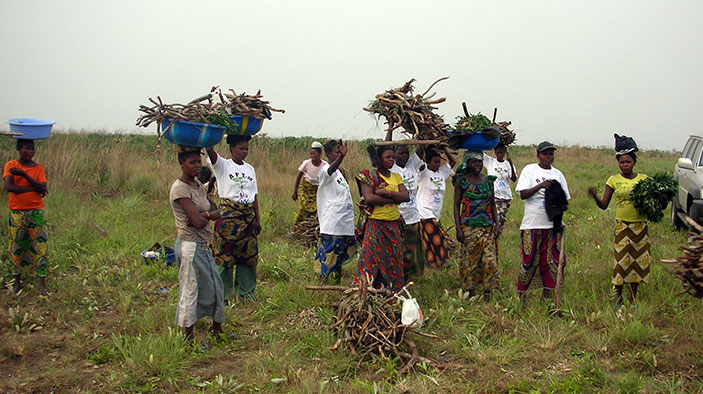Democratic Republic of the Congo—Food Production, Processing, and Marketing (FPPM) Project
Client: U.S. Agency for International Development
Duration: 2011-2014
Region: Sub-Saharan Africa
Country: Democratic Republic of the Congo
Solutions: Economic Growth
Most agricultural transactions undertaken in the Democratic Republic of the Congo (DRC) are by small actors who operate in isolation without the help of reliable institutions, efficiencies, information, and signals. The country lacks critical transport and market infrastructure and supporting systems. The Food Production, Processing, and Marketing (FPPM) Project was the first major economic growth activity for the U.S. Agency for International Development in the DRC since the 2003 end of the civil war. The project helped the DRC achieve food security—both the availability of food and consumers’ ability to purchase it—by improving the production, processing, and marketing of staple foods by smallholders and small and medium-sized enterprises in the provinces surrounding the country’s largest, and by any standard huge, urban market, Kinshasa. Aligned to the Feed the Future Initiative, FPPM improved the availability of productivity-enhancing inputs and services, post-harvest and processing technologies, and transport and marketing services.
Working with producer organizations, public and private partnerships, and other donors and groups, FPPM rehabilitated smallholder access to inputs, services, and markets so that even smallholder farms were able to become income-generating businesses. These businesses learned how to supply rural and urban markets and increased the productivity of all farm labor—notably the 80 percent of the agricultural workforce that is female—building household food security and economic resilience.

Sample Activities
- Support farmer organizations to improve productivity.
- Help farmer groups gain market access.
- Make markets more efficient.
- Improve the capacity for smallholders and agri-businesses to respond to market opportunities.
Select Results
- Assisted 67,231 rural households and impacted either directly or indirectly 454,482 individuals.
- 487 producer organizations benefitted from our assistance, either through improved productivity, value addition, or capacity reinforcement.
- 223 agriculture-related firms received assistance.
- 55 new best practice technologies were introduced.
- 11,491 individuals received short-term agricultural sector productivity or food security training.
- 94 new qualified agricultural extension agents are active in the project zone and 124 qualified business development agents are active.
- 27 storage facilities were constructed by FPPM partners.
RELATED CONTENT:
Regional—AL-INVEST Next Programme Management Unit and EU-LAC Trade and Investment
The AL-INVEST Next Programme and its EU-LAC Trade and Investment Component promote a more dynamic and sustainable economic relationship between the EU and the countries of Latin America and the Caribbean.
Read More